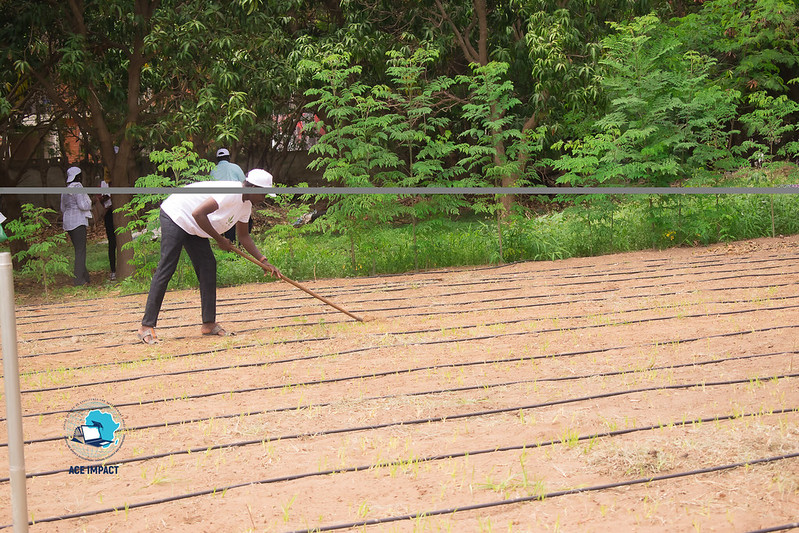Environmental sustainability is no longer a distant concern but a critical issue that demands immediate action. As climate change, resource depletion, and biodiversity loss threaten our planet, global and regional efforts are accelerating to protect the environment for future generations. Among these efforts is the Africa Centres of Excellence for Development Impact (ACE Impact) project, a testament to the power of research, education, and innovation in addressing environmental challenges across Africa.
Global Efforts in Environmental Sustainability
On the global front, several initiatives are paving the way for a more sustainable future. The Paris Agreement, adopted in 2015, continues to be a cornerstone in the fight against climate change, with countries committing to limit global warming to below 2 degrees Celsius. Similarly, the United Nations Sustainable Development Goals (SDGs) provide a comprehensive framework, with specific goals dedicated to climate action, life below water, and life on land. Organizations such as the Intergovernmental Panel on Climate Change (IPCC) provide critical scientific assessments that guide global climate policies, while numerous non-governmental organizations (NGOs) advocate for environmental protection and sustainable practices.
Regional Initiatives in Environmental Sustainability
While global efforts set the overarching agenda, regional initiatives tailor sustainability strategies to local contexts and challenges. In Africa for instance, initiatives like the African Union’s Agenda 2063 emphasises sustainable development, with projects focused on reforestation, conservation, and building climate resilience across the continent.
Despite the several global and regional initiatives, enduring challenges such as extreme weather events, rising sea levels, deforestation, and pollution, with their attendant far-reaching and devastating consequences, highlight the urgent need for continued and enhanced efforts to create a sustainable environment.
World Bank’s Climate Change support through regional initiatives
In response to these growing challenges, the World Bank has taken a leading role in promoting environmental sustainability. Through its Climate Change Action Plan, the World Bank integrates climate considerations into its development efforts, financing projects that promote renewable energy, sustainable agriculture, and climate resilience across the globe.
The ACE Impact Project
A flagship initiative supported by the World Bank, the Africa Centres of Excellence for Development Impact (ACE Impact) project is a vital player in addressing regional development challenges through education and research. The project focuses on critical areas including:
- Environmental Management and Climate Change: Equipping institutions with the expertise and resources needed to tackle environmental challenges.
- Sustainable Agriculture: Promoting environmentally sound agricultural practices to ensure food security and resource conservation.
- Water Resources Management: Enhancing the sustainable management of water resources for development and resilience.
- Renewable Energy: Supporting renewable energy projects to reduce reliance on fossil fuels and mitigate the impacts of climate change.
Areas of Engagement
The World Bank, through its ACE Impact project, established seven (7) centers of excellence focusing on safeguarding the environment in various capacities including coastal resilience, water and sanitation, and sustainable mining activities. These centers are ACE in Water and Sanitation (C2EA), University of Abomey- Calavi, Benin; ACE for Training and Research in Water Science and Technology, 2iE, Burkina Faso; ACE in Mines and Mining Environment (CEA-MEM), INP-HB, Ivory Coast; ACE in Valorization of Waste into High Value-Added Products (VALOPRO), INP-HB, Ivory Coast; ACE in Climate Change, Biodiversity and Sustainable Agriculture (CEA-CCBAD), Félix Houphouët-Boigny University, Ivory Coast; Regional Water and Environmental Sanitation Centre Kumasi (RWESCK), KNUST, Ghana; Africa Centre of Excellence in Coastal Resilience (ACECoR), University of Cape Coast, Ghana; Center for Mines and Societies (CEMS), Institute of Mines and Geology Boké, Guinea. The centre’s focus span;
- Capacity Building: Strengthening institutions and human capital through education and training to address environmental challenges.
- Research and Innovation: Supporting research initiatives that lead to innovative solutions for sustainability.
- Policy and Advocacy: Assisting governments in formulating and implementing policies that promote environmental sustainability.
- Community Involvement: Engaging local communities in sustainable practices and raising awareness about environmental issues to ensure environmental sustainability.
Conclusion
Environmental sustainability is a global imperative that requires a collaborative at all levels, global, regional, and local. Initiatives like the Paris Agreements and the SDGs set the stage , but regional initiatives like ACE Impact, are where meaningful, context-specific change happens. Through education, research, policy, and community involvement, the ACE Impact project is playing a pivotal role in securing a healthier, more resilient planet for future generations.
